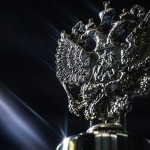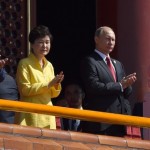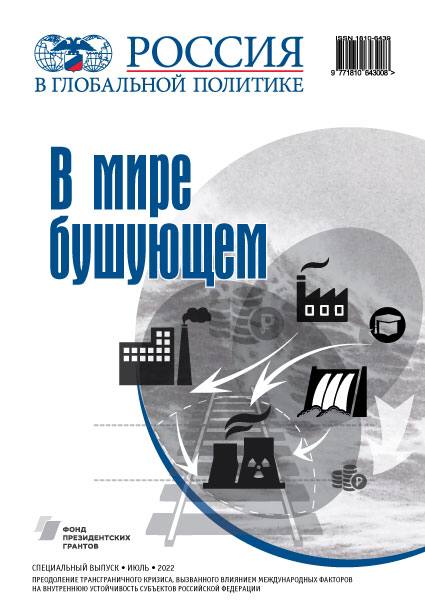Sergey Karaganov: “The world is in pre-war state”
Faced with a crisis, the Russian authorities are trying to convince their people that all of Russia’s troubles come from abroad, but its main battles are also won there.
Sergei Karaganov, Dean of the School of World Economics and International Affairs at the National Research University—Higher School of Economics, in an interview to The New Times offers his proof of why Russia can boast of very tangible and palpable victories on the international stage. The country is fighting for its security and sovereignty, but at the same time he admits that Russia has had “splendid economic failures.”
Crimea as inevitability
We last met shortly after the annexation of Crimea (see The New Times # 13, April 21, 2014), which you justified by saying that Russia had presumably prevented the Yugoslav scenario in Crimea and that the Crimea situation was therefore better than that in Kosovo from the moral and legal points of view. You also said that Crimea had given Russia domestic policy leverage. Almost two years have passed. The results are horrible: the economy is in deep crisis; the ruble has lost two-thirds of its value; cheap Western loans are no longer available to Russian businesses and won’t be in the foreseeable future; Russia has interfered in Syria and brawled with Turkey, and is experiencing obvious problems at the UN—that’s as far as the “moral and legal” side of the issue is concerned. Was it really so necessary to tap that “leverage?” And how do you assess these two past years?
I assess them as a series of brilliant foreign policy victories and splendid economic failures. That our economy would sag was clear five or even seven years ago to all competent economists who were not affiliated with the current government.
That’s when we had our previous crisis in 2008–2009?
That’s right. When we had just begun to get out of that crisis in 2009, it was already clear that a new one was not so far away because the economy remained completely unreformed. It started decelerating noticeably in 2010-2011. So, the devaluation of the ruble is not to be blamed on foreign policy but on our elites, who are not conducting an effective economic and social policy, and on our people, who did not have the resolve to demand that they conduct such a policy. This is the first point. The second factor is the decline in oil prices. While our dear elites were assuring us that Russia would be a great energy power, I kept saying that it was idiocy. The problem is that all our elites, both pro-Kremlin and anti-Kremlin, had always enjoyed the benefits of the resource rent. In fact, most people in this country, with the exception of a small group of very poor or very efficient, did not earn their living but lived off the rent. Now they will have to work for their money. The point I want to make is that our foreign policy looks utterly brilliant against this background.
Are you being serious?
Absolutely. That’s how it actually is, even though it may look paradoxical, because a country with a declining economy can have no strategically sound foreign policy. But what happened in Crimea was unavoidable. I said this two years ago and I can repeat this again now.
What was unavoidable, the annexation?
You call it “annexation” but I call it Russia’s strong reaction to what our (Western) partners were doing before and during the Ukraine crisis. I have always—fifteen, ten, and seven years ago—believed (and said so) that if Western organizations expanded all the way to Ukraine, there would be a war. I actually feared it would be a big war, and I am quite glad that so far it has been a small war despite thousands of lives it has claimed and tens of thousands of refugees it has driven out of homes. But still, it is nothing like Yugoslavia or Syria. We must understand that the Ukraine crisis is one of the delayed effects of the Soviet Union’s collapse. I chaired numerous Russian-Ukrainian commissions in 1992-2001 and I did that only because I knew that we could slide into a war, and I was building relations and friendships in order to avoid that. Then at some point I got so tired of all that that I simply quit.
I think that the Ukrainian story began in 2007-2008 when we found out that the Americans, acting behind the back of even their European colleagues, had decided to launch the process of Ukraine’s admission to NATO and, as far as I know, made a deal with Victor Yushchenko [then Ukrainian President— NT] that he would submit an admission application and the Americans would put the issue to the vote at one of the NATO summits. This did not happen because Germany and France protested and kicked up quite a row. After that the Americans could only make a statement about a possible admission of Georgia and Ukraine to NATO some time in the future. It was after that that Putin made it very clear at the NATO summit in Bucharest that if the question of Ukraine’s accession to NATO would rise ever again, there would simply be no more Ukraine. He did what he promised, albeit partially. What makes our foreign policy already successful is that over the past two years our partners have been gradually reconciling with the thought that Russia would act the way it has been acting guided by its own interests, and that these interests must be respected.
Global games
The Soviet Union broke up even though it had much influence in Africa, Latin America and to some extent in Asia … Russia has no such influence to wield.
To begin with, spheres or zones of influence are a natural state of the world. If someone rejects them, he will face the consequences. Second, the Soviet Union disappeared after the demise of the communist ideology which had kept it afloat. You are right; the Soviet Union had certain influence in Africa and Latin America in the 1950s, 1960s, and 1970s. As a matter of fact, left-wing forces were quite strong in Europe too, attracted by the magnetism of communist ideas. But this influence had worn off almost completely by the 1980s despite its enormous costs. In fact, the Soviet Union provided economic assistance in volumes by far exceeding all the aid rendered by the rest of the world.
The Soviet Union also had a terrible geopolitical situation, much worse than that of present-day Russia: on the left it faced the consolidated West, which we opposed and which was much stronger economically; on the right, it was confronted by hostile China. It was not a bipolar but a tripolar world: two poles against one. Russia has a much better situation now.
Are you saying that Russia can be a global player without spending money to buy influence?
Russia is an absolute global player. There are actually only three of them in the world right now: the United States, Russia, and China. A fourth one, India, may join them in some foreseeable future. That’s it. There are no other players. But unlike the Soviet Union, Russia is not an ideological player. It may become one with time, but I personally would not like to see that happening.
What would you like to see?
I would like to see Russia emerging as a powerful and independent power that acts in accordance with its interests and its essence.
And what is our essence like?
We have two national ideas. The first one is independence, or sovereignty, and the second one is defense. President Putin has recently combined them under the notion of ‘patriotism.’ As far as sovereignty, security and defense are concerned, we are on the right track.
Is this the right track because there are “enemies all around” as television tries to convince us? Or does someone really want to attack or occupy us?
No one is going to occupy us. But we must always remember that as soon as NATO, this most peace-loving defensive alliance of democratic countries, suddenly saw that it was no longer kept at gun point by the bygone Soviet Union with its nuclear capabilities, they did not hesitate to start bombing Yugoslavia with a democratically elected president who was considered the Gorbachev of the Balkans. And then the majority of countries making up this defensive alliance attacked Iraq whose president was less pleasant though. But still, the country was torn to pieces, with casualties coming close to one million. The same was done later in Libya.
Democracy all by itself is good, but unbridled democracy is bad. What is good about the Russian foreign policy is that it weans the world from a new pest called “democratic messianism.” We have seen different kinds of messianism—Christian, communist, and Islamist—but all sought to impose (by force from the outside) their own vision of the world. Everybody is beginning to understand now that this will not be allowed to happen again. Thank God because this means that countries and their people have a chance to choose their own road consciously or more or less consciously. And this is what freedom is all about.
But when Russia, working through people like Girkin-Strelkov, Givi or Motorola, brings the “Russian world” to Donbass which then claims thousands of lives within several months, what kind of “messianism” is that?
A big mistake was made in Ukraine. A considerable part of the Russian elite believed that Ukrainians were a friendly people that wanted to unite with us and Donbass would lead the way. But it turned out that Ukrainian people did not want to unite with us. And, for that matter, did we really need such a union? The Russian elites did not quite understand how badly Ukraine had been ruined over the past quarter of a century. They realized that only when we came to Crimea …
Playing solitaire and putting on airs
It is widely believed that the military operation in Syria is an attempt by the Russian leadership to distract the West’s attention from Ukraine and thus break the isolation using the rhetoric of joint struggle against international terrorism. Do you agree with this?
To begin with, Russia and its Armed Forces were preparing for the kind of interference we see in Syria for several years. The operation was thoroughly prepared too. And when some say that it was a complete surprise for them, they are either idiots or liars. The country airlifts military specialists, hardware, and equipment, repairs aerodromes and access ways, builds housing for the military—why would it do all this with no reason? Just to waste money? We started work at the base in Latakia a year before our first aircraft landed there.
There are several reasons why we interfered in Syria. First, we figured out a long time ago that the Middle East would be prone to cataclysms in the next several decades: most countries in the region, with the exception of centuries-old Iran and Israel with its extraordinary self-consciousness, will be falling apart in the next twenty to thirty years. The question for us to answer is whether the Middle East will be disintegrating without us or we will try to fix something up there because there are tens of thousands of potential terrorists there and it would be better for them to kill each other than multiply and move farther towards our borders.
Second, Russia was aware of the need to maintain some balance in the region to avoid a bigger calamity which would certainly have happened if the Sunnis or Shiites had won in Syria and then in other parts of the Middle East. It’s better not to allow anyone to gain the upper hand there.
Third, we are putting on airs. We want to be a great power. This is actually another national semi-idea, if you please, we have inherited from Peter the Great and Catherine the Great.
And fourthly, I agree that Syria is a way to distract attention from Ukraine and put our relations with Western countries on a different basis. We have fully succeeded in that.
Fully succeeded? Aren’t there problems with the implementation of the Minsk agreements?
The Minsk agreements will be implemented when all the sides involved, including the Americans and Europeans, decide that it is time to implement them. There are no items in the agreement that cannot be implemented, including elections in Donbass and control over the Russian-Ukrainian border. It’s just that the bargaining over Minsk II is still on, but I don’t really know about what exactly.
Going back to Syria, despite obvious military and diplomatic successes, this war cannot be won. We must be ready to get out of there at any moment. And we must start preparing people for that well in advance. That’s the first point. The second point is that we must not get involved in some other conflict along the way.
This is why I am deeply worried by the conflict with Turkey which clearly stabbed us in the back in the meanest way possible. Why did they decide to shoot down our aircraft? The answer partly lies in the peculiarities of political culture in that region. We often understand it wrongly, including the idea of being true to one’s word. But our reaction was also quite emotional. I do hope we will not get another Crimean War on our hands.
What do we want from Turkey in general?
It would be easier to say what we don’t want. Now that we have got involved in the region, we definitely do not want to see either an Ottoman empire, or a Persian empire, or a caliphate there.
In other words, we will clip the wings of both Iran and Turkey?
You said this. I said just what I said… You see, in moral terms Turkey strongly resembles Russia of the late 19th and early 20th centuries. (This actually explains why they still produce great literary works and we don’t). They decided all of a sudden to revive the Ottoman Empire, and they talked about this some five or even ten years ago. It was a fad. This is why they supported the “Arab Spring” four years ago.
The weapon of armageddon
Having brawled with the West, Russia turned to the East, towards China. In your interview two years ago, you spoke of a bright future for the Russian-Chinese union. What would you say now that the Chinese economy is having hard times?
Like in Russia, the economy in China has been developing in an absolutely predictable way. Any educated person would have told you three years ago that China would grow at a rate of 7% in 2016, at 5% five years later, and eventually at 4-5%. This is a result of structural changes in the economy intentionally induced by the Chinese themselves.
For example, they are implementing an “Asia for Asia” policy, which means that their production is geared not to the outside world and the West but to the domestic market and its development. This engendered the Silk Road concept, also called “One Belt, One Road,” aimed at creating conditions for the westward development of the Chinese economy and industry. I don’t know if they will succeed or not. As a rule, prophecies that the Chinese economy will collapse come from those who understand that China continues to benefit from its economic policy.
As for our relations with China, I can assure you that there can hardly be another country as friendly and attentive to us as China is. Moreover, I am convinced that if our economy boomed, China would be eager to give us large loans. But now they say: Do something with yourself so that we could see your prospects. Naturally, they would not lend just for the fun of it so that we could eat this money away as we did with European loans provided to us since 1991. By the way, I was against borrowing at that time, and I still am, because it only increases our debt.
On the other hand, we can see some changes taking place in the Far East, albeit slowly. We are turning towards Asian markets. With the overall volume of export going down, exports to Asia have increased by 20%, with exports to Europe having dropped by as much. The previous system of foreign trade did not benefit end consumers as we bought expensive medicines in Europe or apples in Poland for the sake of kickbacks. We are now gradually changing this system not because we are against Europe but because we have become more prudent.
I am not worried by the fact that we look like China’s junior brother in financial and economic terms. If we start growing economically and retain the position of a leading military-political power in the world, I can see a very beneficial marriage between Russia and China.
What should we do about North Korea which has just scared the world by firing a long-range ballistic missile? Do we know anything about them for sure?
I don’t think so. The Chinese who patronized them for a long time are also clueless. It seems that South Korea, too, has somewhat lost enthusiasm in campaigning for reunification with the North as it has come to understand how painful this process may be. The best way to go about it is to instruct them quietly and direct them along the Chinese way.
Do they really have nuclear weapons as they claim to blackmail their neighbors and the rest of the world?
They certainly do have nuclear weapons made using the most elementary technology, and they have enough of them to use as a threat or deterrence. The current regime views nuclear weapons as the main and only way to keep power. And this regime does not consist of fifty key figures but of millions.
But I would not narrow everything down to just the threat coming from North Korea. The whole world has long been in pre-war state, at least for the past ten years. If it were not for the nuclear “weapons of Armageddon,” a war would have begun a long time ago. Never before have we seen such a rapid change in the balance of power or ideological milestones. Add the revolt of the poor against the rich we call terrorism. This revolt did not start today. It’s just that everyone has finally noticed it, especially now that a million and a half of God knows who have moved to Europe over the past year. If it were not for al-Sisi [Egyptian President Abdel Fattah— NT], Egypt would have gone down too, and then five million people would have come to Europe. If Algeria falls, which is actually quite possible, several million more Africans will end up running to Europe.
All this can easily be foreseen. It’s just that no one in the modern political culture—I intentionally avoid saying “Western” in order not to offend anyone—seems to be capable of foreseeing developments several years ahead.
Interviewed by Yevgenia Albats and Boris Yunanov













